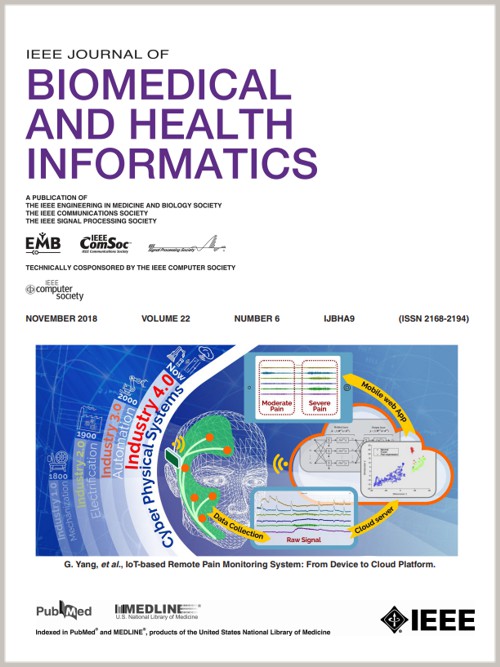UnBias:揭示深度学习模型在医疗保健应用中的偏差影响。
IF 6.7
2区 医学
Q1 COMPUTER SCIENCE, INFORMATION SYSTEMS
IEEE Journal of Biomedical and Health Informatics
Pub Date : 2024-11-04
DOI:10.1109/JBHI.2024.3484951
引用次数: 0
摘要
深度学习驱动的人工智能系统在医疗保健、信用评估、就业和刑事司法等不同应用领域的快速整合,引发了人们对其公平性的担忧,尤其是在如何处理不同人口群体方面。本研究深入探讨了深度学习模型中存在的偏见及其对伦理的影响。它引入了一种 UnBias 方法,用于评估不同深度神经网络架构中的偏差,并检测偏差渗入学习过程、使模型重点偏离主要特征的情况。这有助于在不同的社会环境中,特别是在医疗保健领域,推动公平、可信的人工智能应用。我们进行了一项关于 COVID-19 检测的案例研究,涉及来自不同公开资料库的胸部 X 光扫描数据集,以及四种深度学习架构中五种代表性较强和代表性较弱的基于性别的模型:这些模型包括 ResNet50V2、DenseNet121、InceptionV3 和 Xception。本文章由计算机程序翻译,如有差异,请以英文原文为准。
UnBias: Unveiling Bias Implications in Deep Learning Models for Healthcare Applications
The rapid integration of deep learning-powered artificial intelligence systems in diverse applications such as healthcare, credit assessment, employment, and criminal justice has raised concerns about their fairness, particularly in how they handle various demographic groups. This study delves into the existing biases and their ethical implications in deep learning models. It introduces an UnBias approach for assessing bias in different deep neural network architectures and detects instances where bias seeps into the learning process, shifting the model's focus away from the main features. This contributes to the advancement of equitable and trustworthy AI applications in diverse social settings, especially in healthcare. A case study on COVID-19 detection is carried out, involving chest X-ray scan datasets from various publicly accessible repositories and five well-represented and underrepresented gender-based models across four deep-learning architectures: ResNet50V2, DenseNet121, InceptionV3, and Xception.
求助全文
通过发布文献求助,成功后即可免费获取论文全文。
去求助
来源期刊

IEEE Journal of Biomedical and Health Informatics
COMPUTER SCIENCE, INFORMATION SYSTEMS-COMPUTER SCIENCE, INTERDISCIPLINARY APPLICATIONS
CiteScore
13.60
自引率
6.50%
发文量
1151
期刊介绍:
IEEE Journal of Biomedical and Health Informatics publishes original papers presenting recent advances where information and communication technologies intersect with health, healthcare, life sciences, and biomedicine. Topics include acquisition, transmission, storage, retrieval, management, and analysis of biomedical and health information. The journal covers applications of information technologies in healthcare, patient monitoring, preventive care, early disease diagnosis, therapy discovery, and personalized treatment protocols. It explores electronic medical and health records, clinical information systems, decision support systems, medical and biological imaging informatics, wearable systems, body area/sensor networks, and more. Integration-related topics like interoperability, evidence-based medicine, and secure patient data are also addressed.
 求助内容:
求助内容: 应助结果提醒方式:
应助结果提醒方式:


